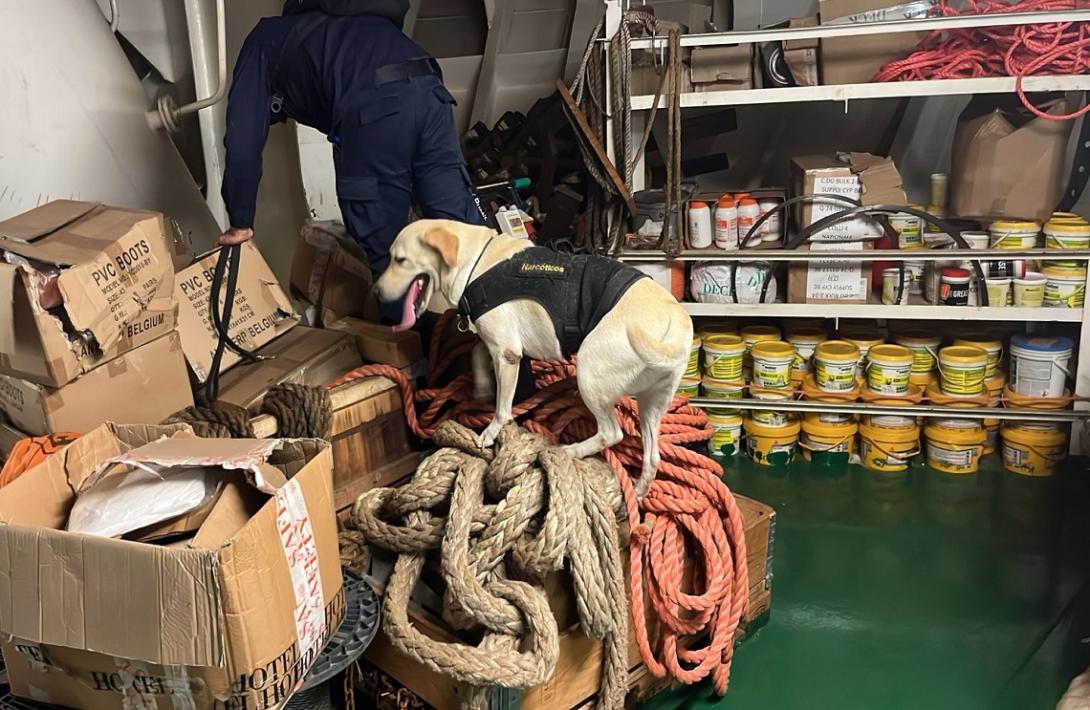The Colombian Navy, reaffirming its commitment in the frontal fight against the crime of drug trafficking, through control and surveillance tasks in the maritime communication lines of the region, carried out one mission to the boat MSC Romane, after receiving a call by the Civil Guard of Portugal, who reported that the ship had seen people other than the crew on board, during its transit in Colombian waters, 50 nautical miles from Santa Marta, department of Magdalena.
Immediately, a Rapid Reaction Unit – URR of the Coast Guard of the Naval Institution was deployed, which escorted the boat coming from Panama and bound for Malta, to the Coast Guard Station of Santa Marta, to carry out the procedure, in the same way supported by a trained anti-narcotics dog.
During the conversation established with the captain of the Portuguese-flagged ship, it was learned that, allegedly, two go fast type boats with several individuals, approached and boarded. Upon noticing the activity of people different from the crew, the security protocol was activated and the shipping group was notified, which in turn alerted the flagging authorities.
During the review of the safety videos on board, the attempted contamination with some bags, which possibly corresponded to illicit substances, is evidenced. However, the operation left no findings of strange people, or suspicious material on the ship.
It should be noted that the pollution of merchant ships anchored or sailing on the seas continues to be a modality with which criminal organizations intend to transport drugs to international illicit markets. Generally, drug traffickers, with the support of some crew members of these cargo boats, approach in speedboats to try to introduce narcotics into containers or hide illicit shipments in some compartment.
Criminal organizations use this modality to move large quantities of drugs to Europe, mainly taking advantage of the difficulty of covering the vast maritime space.
The Colombian Navy is fighting this phenomenon head-on, implementing a comprehensive approach with the different companies in charge of maritime transport, combining technology, intelligence and international cooperation, as well as surveillance on the seas and accompaniment on critical drug trafficking routes, in ports such as Santa Marta.
These strategies have led to the dismantling of five structures specialized in transnational drug trafficking through high-level ships in the last three years. In the same way, more than 70 tons of cocaine hydrochloride have been found and more than 50 people have been arrested, thus preventing these groups from consolidating their criminal intentions.
Source: Press – Navy of Colombia

